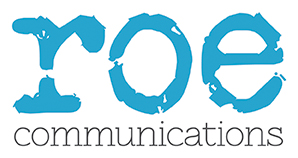In the highly competitive world of higher education, student recruitment is a constant challenge for business schools.
This is particularly high on the agenda now, with uncertainty over visas and immigration policies and students questioning the ROI of business studies.
Having a positive reputation in the media can make it easier for all other marketing and sales campaigns to succeed.
This isn’t just about getting a school’s name in newspapers or having faculty quoted in articles.
It’s a powerful way to build a school’s reputation, position it as a leader, and raise awareness of its specific expertise.
Done well, media relations can directly influence prospective students’ decisions and drive higher enrolment numbers.
1. Improving brand visibility and awareness
The first step in student recruitment is ensuring they know about a school. This is where media coverage plays a critical role.
When a business school is mentioned in prestigious media outlets, like top-tier newspapers or education publications, it increases its visibility and places the school in front of a wider audience.
More importantly, third-party endorsements from respected journalists or outlets make the brand appear more credible than any paid ad could.
Why it matters:
- Visibility: Prospective students often don’t apply to schools they haven’t heard of. Media coverage ensures that schools are top-of-mind.
- Credibility: Students trust news outlets and influencers more than advertising, so media coverage adds a layer of trustworthiness to a brand.
- Reach: Being covered by influential media sources extends a school’s reach beyond its existing audience, drawing in students from different regions or demographics.
2. Highlighting key differentiators
Every business school has unique selling points, such as expertise on topics like AI or sustainability, subject-specific programmes, international campus networks, or innovative teaching methods. Media relations can help highlight these differentiators in a way that supports student recruitment.
Positive media coverage can focus on real-life stories to demonstrate how a school prepares students for the modern business world. For example, coverage of faculty experts sharing their views on business trends or student success stories can showcase how a school offers value.
Why it matters:
- Comparison: Prospective students often compare multiple schools before making a decision. Media coverage can provide them with information that sets a school apart from its competitors.
- Career aspirations: Press features or interviews that emphasise a school’s unique strengths give prospective students a clearer picture of how a school can help them achieve their personal and professional goals.
3. Showcasing faculty expertise
Prospective students are increasingly looking for schools with leading experts who can provide them with cutting-edge insights. Media relations helps elevate faculty as thought leaders in their fields, which can be important for students.
By securing interviews, guest articles, and media mentions for faculty, a school can demonstrate not only that it is academically rigorous but that it is connected to the latest industry trends and challenges.
When faculty members are quoted as subject-matter experts in the media, it enhances an institution’s academic reputation and helps attract students who want to be at the forefront of their fields.
Why it matters:
- Authority: Faculty expertise in the media helps build a school’s reputation as an authority in business education, which prospective students often seek when choosing where to apply.
- Depth: Thought leadership in relevant industry sectors gives prospective students a sense of the depth of knowledge they will gain at a school.
4. Showcasing student and alumni successes
Prospective students are thinking about the career opportunities that will come after they graduate.
Alumni success stories are a powerful tool in student recruitment. When successful alumni are featured in the media, they act as living proof of the value of their business school experience.
Media coverage of notable alumni achievements, for example in entrepreneurship, leadership or social impact, demonstrates that a school provides a solid foundation for success.
Prospective students are more likely to apply if they see that a school’s alumni are excelling in their careers.
Why it matters:
- Networks: Students are often looking for schools that provide a network of successful alumni to guide them after graduation.
- Quality: Success stories not only show the quality of a school’s education but also inspire prospective students, motivating them to apply.
5. Building long-term relationships with prospective students
Done consistently, media coverage can also help a school develop ongoing relationships with prospective students. By engaging with journalists, a school can ensure they are continuously highlighted as a top choice for business education.
Creating a drip-drip of media stories showcasing a school’s achievements, faculty, and student successes helps create a sense of brand loyalty and awareness before students begin the application process.
Why it matters
- Top of mind: By keeping a school in the public eye year-round, media relations ensure that a brand is top of mind when prospective students begin their college search.
- Credibility: Long-term media coverage builds credibility and reputation, two key factors that influence enrolment decisions.
6. Creating powerful assets
What many business schools don’t realise is that PR intensifies all their other marketing activities.
By investing in its media profile, a school will make it easier for all its other student recruitment campaigns to succeed.
Prospective students are more likely to visit their website if they see positive articles online.
What’s more, they will have a better understanding of a school’s specialist areas.
And a school will have ready-made assets to use in other marketing activities.
Social media engagement can be enhanced by sharing and referring to stories in the press. Conversations at MBA recruitment events can refer back to endorsements in the media. Plus, a school can refer to positive media coverage on its website.
Why it matters
- Fresh content: Coming up with interesting content for websites and social media isn’t always easy. Sharing positive press articles can create significant excitement and engagement for a school.
- Desire: Not everyone wants to be sold to. Media relations enables a school to create credibility and become desirable.
Improving visibility amongst prospective students
In today’s competitive educational landscape, driving student recruitment requires more than just traditional advertising. Media relations is a powerful tool that can significantly improve a business school’s visibility, credibility, and appeal to prospective students.
A proactive, well-managed media strategy can be the difference between a business school being just another option or the top choice for the best and brightest future students.
If you would like some advice about how media relations could benefit your business school, get in touch!


